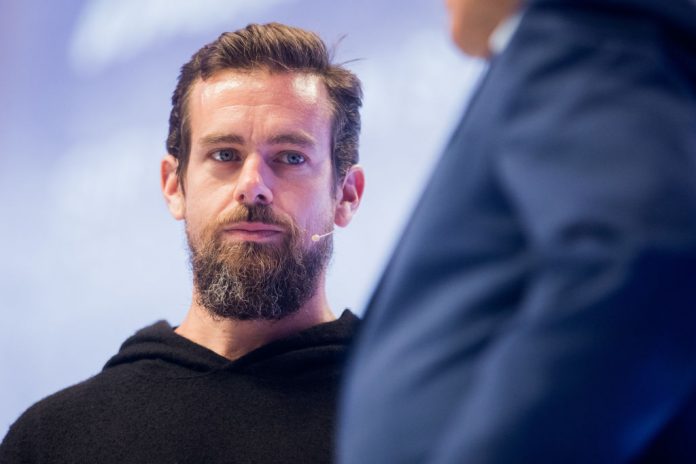Twitter announced that it will ban political advertisements beginning 15 November and Facebook remains defiant on the issue despite Cambridge Analytica
Jack Dorsey, CEO of Twitter, yesterday (30 October) wrote a thread explaining that he will stop all political advertising on the social media platform.
He promised to share the final policy by 15 November 2019, including a list of advertisements that he will still allow on Twitter. This includes advertising in support of voter registration, which is safe ground as it encourages more people to vote without enforcing who they should vote for. The new policy will begin to be enforced on 22 November, so that people have time to change their strategies before the cut-off point.
Dorsey outlined some of the reasons behind this change.
He describes “civic discourse” as the thing he is trying to preserve. Recently, internet users have become familiar with the accuracy of AI micro-targeting – adverts that appear based on our socio-economic status, identity and geographic area, talking to us, but saying what?
The lack of accountability to misleading information and the rise of deep fakes led to campaigns which misled whole populations, such as the Brexit line of messaging. Dorsey, in his explanatory thread, highlights that it is up to social media to be responsible for the implications of their advertising and to value the implications above the immediate financial reward.
What do people think?
We spoke to three anonymous UK individuals who regularly use social media about the concept of banning political advertisement. They all referred loosely to Brexit, and sounded disillusioned about the truth-telling capacity of advertisements.
The question we asked was: “Should social media platforms ban political advertising?”
One man was resolute:
“I think yes, until all fakes can be eradicated in some sort of way. Until people can tell what is real and what is fake, it does more harm than good if it’s on there. I think Twitter have done the right thing to ban it. Currently, I think it affects America more than it affects the UK.”
Another commented on the need for equal access to advertising:
“I think it would be fine if it was obviously official, and not just some random post. It would have to be done fairly, you’d have to promote them all equally. But because you’ve got bias based purely on funding, it would be an unfair race.”
Focusing on the need for regulation, our last individual said:
“I think that after the scandal with Cambridge Analytica, we should be really wary of what we see in social media as advertisement – especially when it comes to politics.
“I think twitter is doing a great job banning political ads, because after all, it’s not deciding what shoes to buy, it’s deciding about your country. This can have long-term consequences.”
Long-term consequences include financial losses for the social media giants – Twitter makes significantly less than Facebook on political advertising but appears to embrace the loss. Twitter has seen multiple social and political movements born on the platform, which Jack Dorsey praises above ideological seeds planted by political candidates and parties.
One example of an organic change that begun via the platform is #BlackLivesMatter, which arose from a grassroots level, mobilising raw pain and experiences of police brutality into a global movement of institutional accountability. On movements that impact the world like this, Dorsey said “I trust this will only grow.”
What about Facebook?
Dorsey further questions the credibility of how Mark Zuckerberg, CEO of Facebook, has been doing things.
For instance, it‘s not credible for us to say: “We’re working hard to stop people from gaming our systems to spread misleading info, buuut if someone pays us to target and force people to see their political ad…well…they can say whatever they want! 😉”
— jack 🌍🌏🌎 (@jack) October 30, 2019
Zuckerberg has recently appeared before Congress to discuss the Cambridge Analytica scandal and regulatory mechanisms used by the globally influential platform.
In an exchange with Rep. Alexandria Ocasio-Cortez, he dismissed the need for political advertisement regulation:
“Congresswoman, in most cases, in a democracy I believe that people should be able to see for themselves what politicians that they may or may not vote for themselves.”
He has re-iterated his political strategy of “free speech” whilst facing political scrutiny about the spread of misinformation. At a talk delivered to Georgetown University students, he said:
“People having the power to express themselves at scale is a new kind of force in the world — a Fifth Estate alongside the other power structures of society.”
The exploration of social media as a means to power-check the powerful and create change is one of the ideas that Zuckerberg clings to, naming this dynamic the Fifth Estate after the media, who have always been the Fourth.
James A. Ingram, writing for OAG on how misinformation impacts public mentality, said:
“If an audience with a sharp appetite for controversy and a short attention span sees a juicy, counter-intuitive clip which kindles a political wildfire, it can have desperately serious consequences.
“Not least, it chips away at the credibility of politicians as a class.
“The belief that they will “say anything” is already widespread; think how grave a matter it is if you combine that toxic belief with an ingrained suspicion of the authenticity of the footage of any politician.
“What message does that send to the electorate?”











